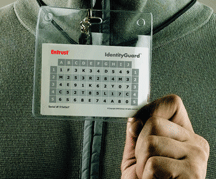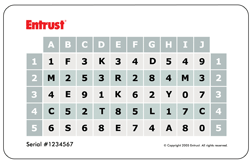 Movie Poster - “DEATH OF A PRESIDENT” - Directed by Gabriel Range - Rated R - Wide release CREDIT: Newmarket Films
Movie Poster - “DEATH OF A PRESIDENT” - Directed by Gabriel Range - Rated R - Wide release CREDIT: Newmarket Films“Death of a President” Signals Death Of A Strategy
We all remember the role President George W. Bush played in a “documentary” that was released before a major election here in the United States.
You know, the bumbling “so-called” leader of the free world, caught as if he were a “deer in the headlights” when he was informed of the attack on the World Trade Center buildings while reading to children as he promoted his administration’s education agenda.
Michael Moore made a lot of money and almost brought down a presidency (which was his agenda) with a largely untruthful (59 Deceits, Kopel), disputed (Unfairenheit 9/11, Hitchens), and widely seen film, “Fahrenheit 9/11”, that was made in an adapted documentary style in order to lend the film and its conclusions credibility.
The content and the timing in the run-up to the 2004 presidential election was all a stroke that almost achieved its desired effect.
Enter now, a film starring President George W. Bush that was assembled in the documentary style, entered in a prestigious film festival (Toronto) in order to garner distribution, and released just before an election … sound familiar?
This one, as opposed to mocking a sitting U.S. president, sets out to kill a sitting U.S. president – and release the movie just before an election to influence and make a boatload of money, by a Brit.
 “DEATH OF A PRESIDENT” - Directed by Gabriel Range - Rated R - Wide release CREDIT: Newmarket Films
“DEATH OF A PRESIDENT” - Directed by Gabriel Range - Rated R - Wide release CREDIT: Newmarket FilmsExcerpts from Sunday Paper -
‘President’ imagines frighteningly plausible future
Sunday Paper - SHORT TAKES – By Steve Warren – 10-29-06
"Death of a President" is bound to be the year's most polarizing movie, but not entirely for the right reasons. Although he's portrayed sympathetically, supporters of President George Walker Bush are so incensed by the film's premise they won't consider seeing it, but progressives who do are in for a surprise. The British telefilm reveals small details of American law enforcement and justice in a manner more insidious than incendiary.
Pres. Bush gives a speech in Chicago on Oct. 19, 2007. Throngs of protestors, mostly peaceful but infiltrated by a few hardcore militants, interrupt the presidential motorcade, leading to a quick, brutal police response. After the speech, the President is shot twice by a sniper's rifle.
A new Patriot Act is pushed through Congress, further restricting the liberties of all Americans. "CSI" fans should appreciate the insights of a forensics expert pressured to make very slight evidence fit the desired conclusion.
"Death of a President" is a subtle mystery-thriller that doesn't play by the rules. Director Gabriel Range brilliantly combines archival material with newly filmed talking heads and reenactments and occasional computer trickery for a credible documentary look. There are no big action scenes, no suspenseful climax, and Richard Harvey's minimalist score uses no obvious tricks to play on your emotions. Without endorsing assassination as a solution to America's problems or anyone's problems with America, it shows why some people might consider it, and creates a believable scenario of what might happen if they did. 3 STARS—Steve Warren
Reference Here>>
 Gabriel Range, director and writer of "Death of a President” Image Credit: FNC
Gabriel Range, director and writer of "Death of a President” Image Credit: FNCInterview of “Death of a President” director and writer by John Gibson, Fox News -
GIBSON: Here now is the director and writer of the film, Gabriel Range.
So Mr. Range, do you understand why that picture of George W. Bush getting shot makes Americans so angry?
GABRIEL RANGE, DIRECTOR AND WRITER OF "DEATH OF A PRESIDENT": Well, I can understand that it's a provocative image, it's a very striking image and I can understand, of course, that this is a sensitive subject. But I think that sometimes it is right for a film to be provocative. The film doesn't take the assassination of President Bush as a starting point for entertainment. It is a serious film that I hope is thought provoking.
GIBSON: Yeah, but it takes the assassination of President Bush as a perfectly logical thing. You have this riot going on at the arrival of President Bush that has never happened in America, ever. And it has happened in Britain. It looks like a British riot dropped into Chicago on which you then graft this assassination.
And here's the point: Look at this double image. This double image shows President Bush being assassinated in your film and in the real life image that every American knows, Lee Harvey Oswald is being shot by Jack Ruby. You took that iconic image of Oswald being shot by Ruby and made it Bush. Oswald, the guy who assassinated President Kennedy, some would argue deserved to be shot. President Bush, the argument seems to be in this movie, deserves to be shot.
RANGE: Absolutely not. First of all, I take issue with what you say that President Bush has never been met with a riot. As it happens, the events in that first part of the film are absolutely a reflection of what happened when President Bush visited Portland in 2003. He absolutely has been met with that kind of response in a city.
GIBSON: Nobody has gotten to the motorcade.
RANGE: They have forced the motorcade to stop on one occasion in Portland.
GIBSON: But you understand, you are a Brit, everybody making this film is a Brit. This is a European sensibility of Bush, of a Bush riot, of the whole buildup of the trouble that would cause. This is not how Americans see Bush.
RANGE: Well, you know, you are entitled to your opinion. I, of course, respect your opinion that it's a European sensibility. But I personally don't think it is.
I think the film describes some of the responses to 9/11, which of course was an attack on American soil, but you don't have to be American to feel the consequences of that event. We are aware of the War on Terror back in Britain as well. And obviously London last July was also the scene of a terrible act of terrorism. So I think it is valid for me as a Brit to make a film that touches on these issues.
GIBSON: You take an incident in American history to justify the way the suspect in this assassination is handled. Of course America made a mistake about the Japanese internment in World War II. The Supreme Court has spoken about it and there have been apologies issued. You make the treatment of that suspect correlate to the treatment of the Japanese after World War II. Of course America looks bad in that situation. And what one is left with watching your film is that here's a guy who thinks President Bush - some people think President Bush deserves to be assassinated and that it is an inevitable consequence of what he has done and now we're going to show America then screwing up the investigation into who did it.
RANGE: The film in no way suggests that the assassination of President Bush is inevitable. It certainly doesn't suggest that it would be a good idea. I don't think that anyone could leave the cinema thinking that the world would be better in the aftermath of a horrific event like this. It portrays the assassination as something which is a horrific event with truly terrible consequences.
GIBSON: Doesn't take a sensibility - I mean, I read the British press and I have been chastised by the British government for my statements about the BBC. I see how much President Bush is disliked. I see how much he is hated. You are talking about this riot on his arrival, a real sense of hate in the protest, the worst scene I have ever seen, a reporter says. This is completely transferred whole cloth from a European or British sensibility to America and made to seem as if it is American when Americans don't recognize that it is true.
RANGE: That is not the response that it has got from many quarters. But I respect your - you are free to make your own judgment. What I would say to people is this film is not what you think and no way a personal attack on President Bush. It is a big criticism of some of the things that the administration has done in the last five years, but I would urge people to go and see the film themselves and make a judgment.
GIBSON: Gabriel Range, the director and writer of "Death of a President." Mr. Range, thanks very much. Appreciate it.
RANGE: Thank you for having me on.
Reference Here>>
 FOXlight With Bill McCuddy - Image Credit: Bill McCuddy
FOXlight With Bill McCuddy - Image Credit: Bill McCuddyAnd this from Bill McCuddy about the Toronto Film Festival debut of “Death of a President” -
At the same time, the international critics gave their award to "Death of a President." This may reflect certain feelings around the world about George Bush, but I'm sticking to my guns here. It's inappropriate to make a film about killing a sitting U.S. president, no matter what your politics. There's nothing smart or cool about that.
"Death of a President" may be a big hit overseas, but I doubt it. And its sale to Newmarket Films in the U.S. - the same company that released "The Passion of the Christ" - speaks volumes. Newmarket paid $1 million for "DoaP," about a quarter of what it cost. In the U.S., though, I think it will be ignored not only for its tastelessness, but because it's a bad, boring film, a long, tedious "CSI" that goes nowhere to prove a stupid point ...
Reference Here>>
The movie opened in 91 theaters throughout the US. Most openings average over $1,000 per screen, per showing according to McCuddy. Today, on Fox News Morning, Bill McCuddy stated after an interview with the director and writer of the movie, Gabriel Range, the opening this weekend is averaging about $670 per screen or 30% below a normal average.
This “VOTE” seems conclusive and appropriate. We can only hope.
The fact that this movie was made to be released at this time by a non-citizen Brit is a little like the Dixie Chicks speaking openly at a concert in England about their displeasure about the President during a time of war. Decorum is lost on both for, what it seems to be here at MAXINE, political leftist-hatred of the right and profit-motive. At the time each of these incidents happened, these motives were at play. Over time, obviously, it is hard to keep beating this drum once the audience has gone home.






























